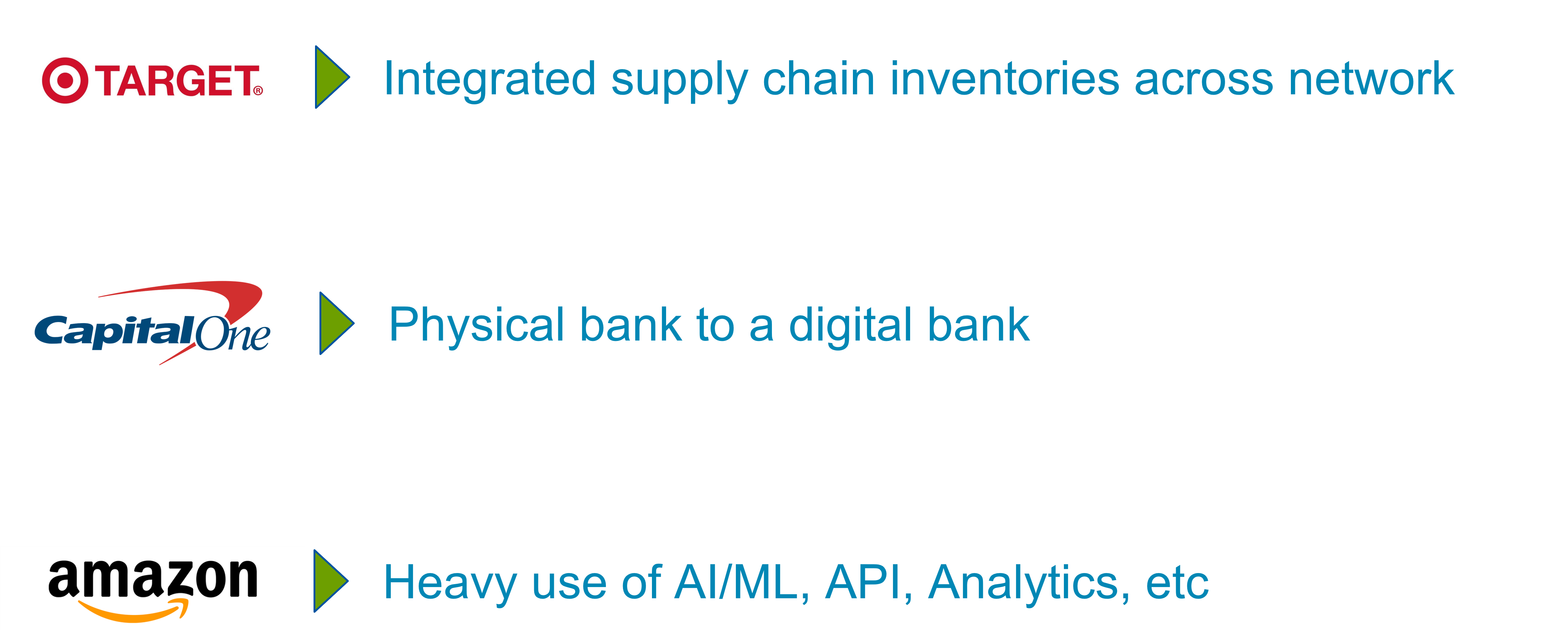Business transformation
Business transformation
Business Transformation is an umbrella term that is used for referring to fundamental changes in how an organization conducts its business. For example:
- Microsoft started as a package software vendor and now they sell software subscriptions
- Amazon started out as a bookstore and now they sell everything in its marketplace
- Apple used to sell computers and now they sell phones, ipads, music subscription
Digital transformation
As the business trasforms, it requires rapid changes to the processes and capabilities. These business changes translate into changes in how technology is used for meeting and exceeding the needs of the business. Digital Transformation is the process of using digital technologies to:
-
Meet the needs of transformed business processes
-
Create innovative customer engagement mechanisms
A better definition is:
Reimagining of business in the digital age is digital transformation
Here are examples of some companies that have undergone significant digital transformation over the last decade. They have used the technology to become leaders in their industries:

Why businesses transform?
There are many reasons for businesses to transform. Mostly these reasons may be categorized as
-
External changes e.g., new regulations, competitive threats
-
Opportunity e.g., advancement in technology leading to new products
Businesses that do not transform with changing times tend to fall out. For example Blockbuster video did not change its business model in the face of competion form video streaming service Netflix; needless to say that they closed their doors in 2013. Continuous transformation is the mantra that all businesses must follow.